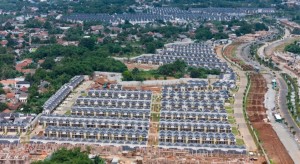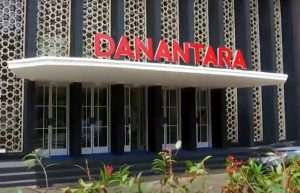Economist warns of impacts of online loans, stagnant real sector
The economically depressed society is a result of their rampant subscription to online lending platforms (pinjol), massive layoffs, VAT increase and the contracted Manufacturing Index, an economist has warned.
"Indonesia's economic growth in long-term historical trend is driven by household consumption. That also explains the increase in pinjol and savings depletion. Household consumption is financed by debt and savings, not income," Economist and Capital Market Observer at PT Bejana Investidata Globalindo, Yanuar Rizky, spoke to Indonesia Business Post, on Friday, October 18, 2024.
He quoted a release issued by the Financial Services Authority (OJK), which reveals the outstanding online lending financing in August 2024 grew 9.03 percent year on year (yoy) and the total financing value reaching Rp72.03 trillion (US$4.7 billion).
He expressed his concerns about this phenomenon which he considered to be increasingly suppressing the lower middle class. "People say our purchasing power is good, education is increasing, we are still able to pay. But, just look at how huge this online lending is," he said.
Yanuar also highlighted the report by the Indonesian Deposit Insurance Corporation (LPS) which showed a decrease in the value of customer deposits with savings of more than Rp100 million. He called this phenomenon “makan tabungan” or "eating up savings" which indicates the increasingly critical financial conditions of the society.
Another signal that has eroded people’s purchasing power, according to Yanuar, is the increased number of layoffs in the formal sector this year, which has reached 54,000 cases. A decline in the number of workers in the formal sector means an increase in the number of informal workers. The decrease in the number of workers in the formal sector is also marked by the continued decline in the manufacturing PMI index.
"So, the problem of declining household consumption is marked by deflation, the problem is on the demand side, purchasing power," he said.
Yanuar also criticized the government's plan to increase the Value-Added Tax (VAT) to 12 percent next year, which will only add pressure on household consumption.
Meanwhile, an economist and banking observer from Bina Nusantara University (Binus), Doddy Ariefianto, assessed that the decline in people's purchasing power occurred because the real sector has not been running well, or in other words stagnant. He said that stagnant real sector directly disrupts people's income, which ultimately affects people’s purchasing power.
"One of the causes of weakened purchasing power is income. We have a problem, the real sector is not running well," Doddy said as quoted by Bloomberg Technoz on Thursday, October 17, 2024.
He said further explained that the deflation that occurred for five consecutive months, amidst the rampant layoffs, is an indication of declining people's purchasing power. This condition indicates that there is a problem that needs to be resolved immediately so that the real sector can move again and the economy can recover.
Structural issue
Yanuar assessed that efforts to fix the problem of structural poverty should be in he forms of agrarian reform, which is expected to increase food security, transform small farmers (farm laborers) into the agricultural service industry and/or lucrative horticultural plantations, such as durian and coffee.
He questioned the role of state spending (fiscal) and State-owned Enterprises (SOEs) as development agents, which has not been successful in transforming the village economy in terms of comprehensive agrarian reform. He also questioned the selection of Cabinet ministers by President-elect Prabowo Subianto, who has the tendency of being playful with import quotas.
Tag
Already have an account? Sign In
-
Start reading
Freemium
-
Monthly Subscription
30% OFF$26.03
$37.19/MonthCancel anytime
This offer is open to all new subscribers!
Subscribe now -
Yearly Subscription
33% OFF$228.13
$340.5/YearCancel anytime
This offer is open to all new subscribers!
Subscribe now






